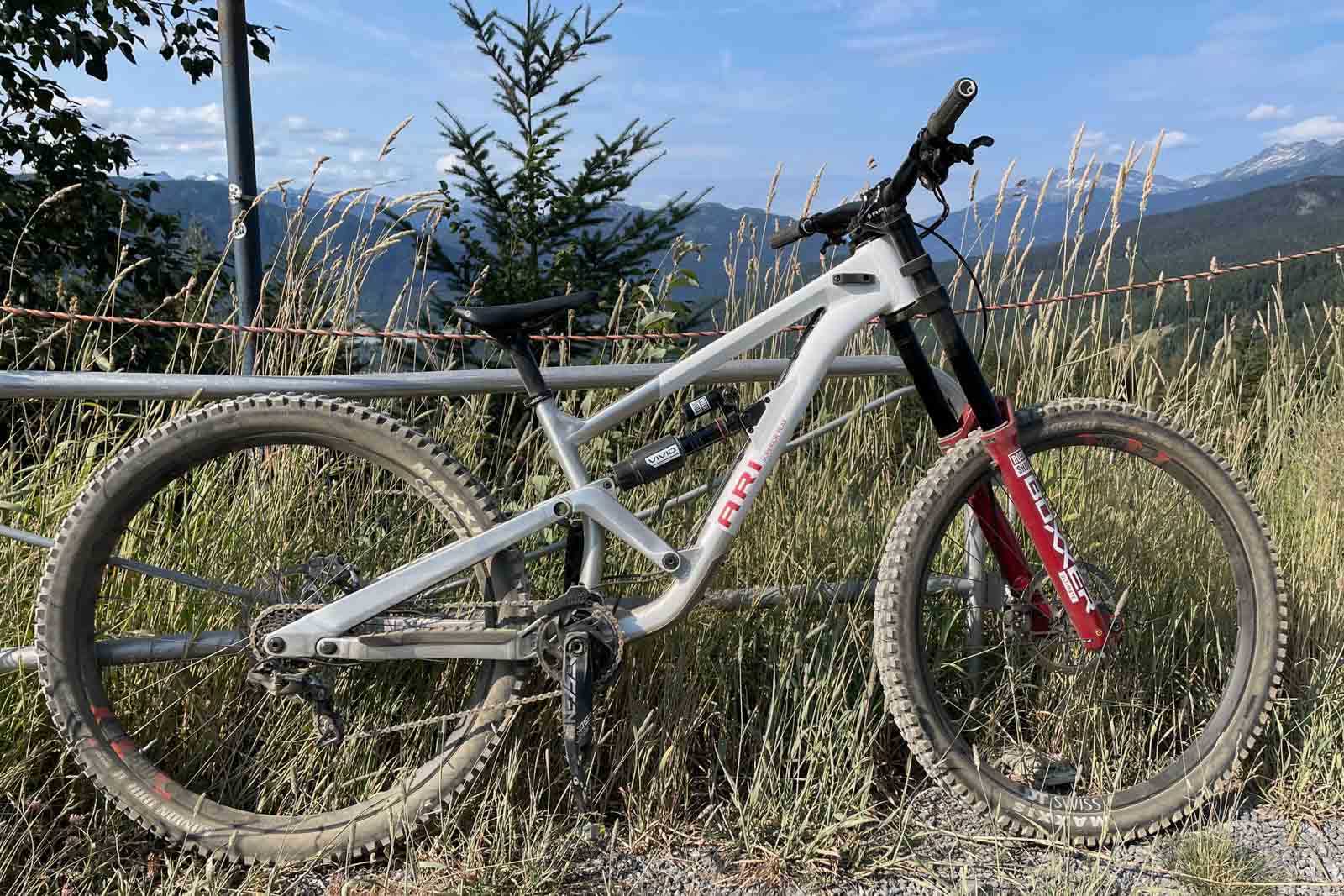Sometimes it’s interesting to hear how a new bike comes about. In the case of Ari’s incoming Superior Peak downhill bike, it was created because their sponsored riders needed a DH race bike, or something to ride freeride contests with. When these riders started producing results on the bike, Ari started getting questions about where people could get one!
Initially Ari hadn’t decided if this bike would go into production, but with anticipation building, they opted to produce a small run of the Superior Peak this year. The bike will soon be available in two complete builds or as a frameset.
Ari Superior Peak – Key Features:
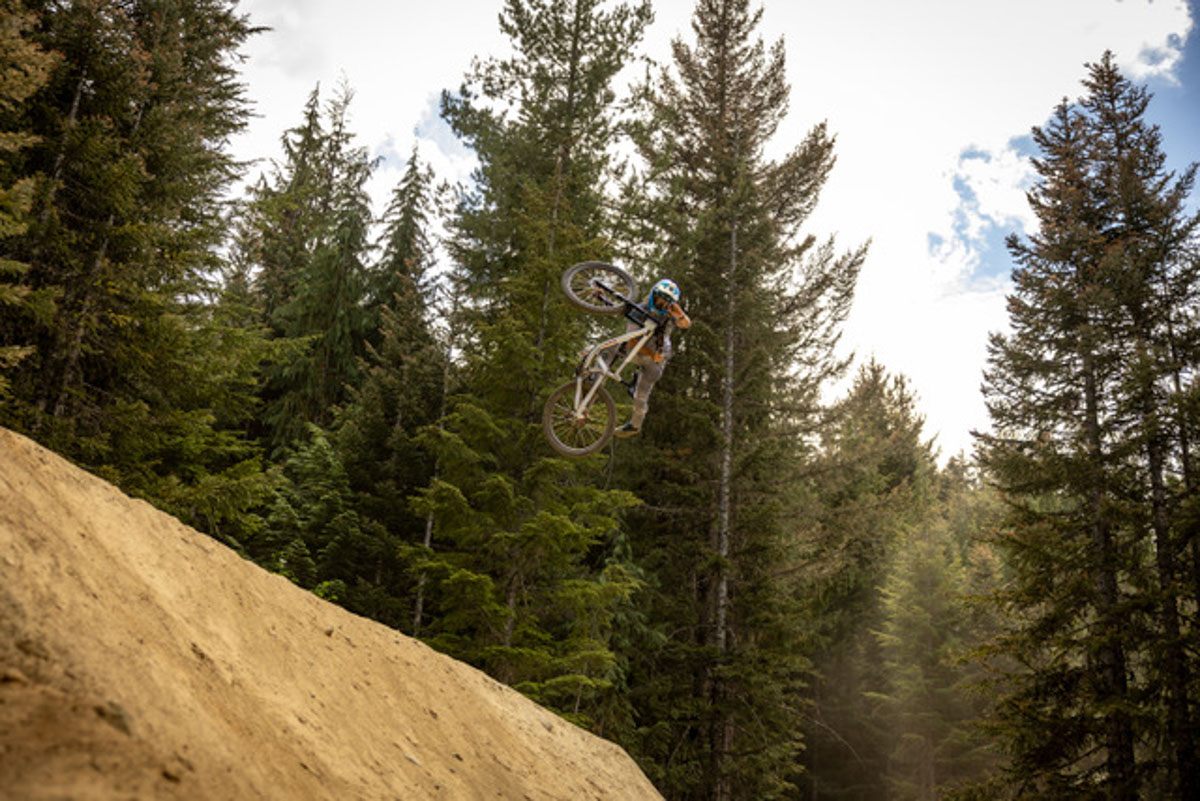
While the Superior Peak is a fully capable downhill race bike, it was designed to include plenty of versatility and adjustability. Ari has freeride athletes riding this frame in addition to their racers, so it’s a good thing this bike can be set up for racing or freeride/bike park use.
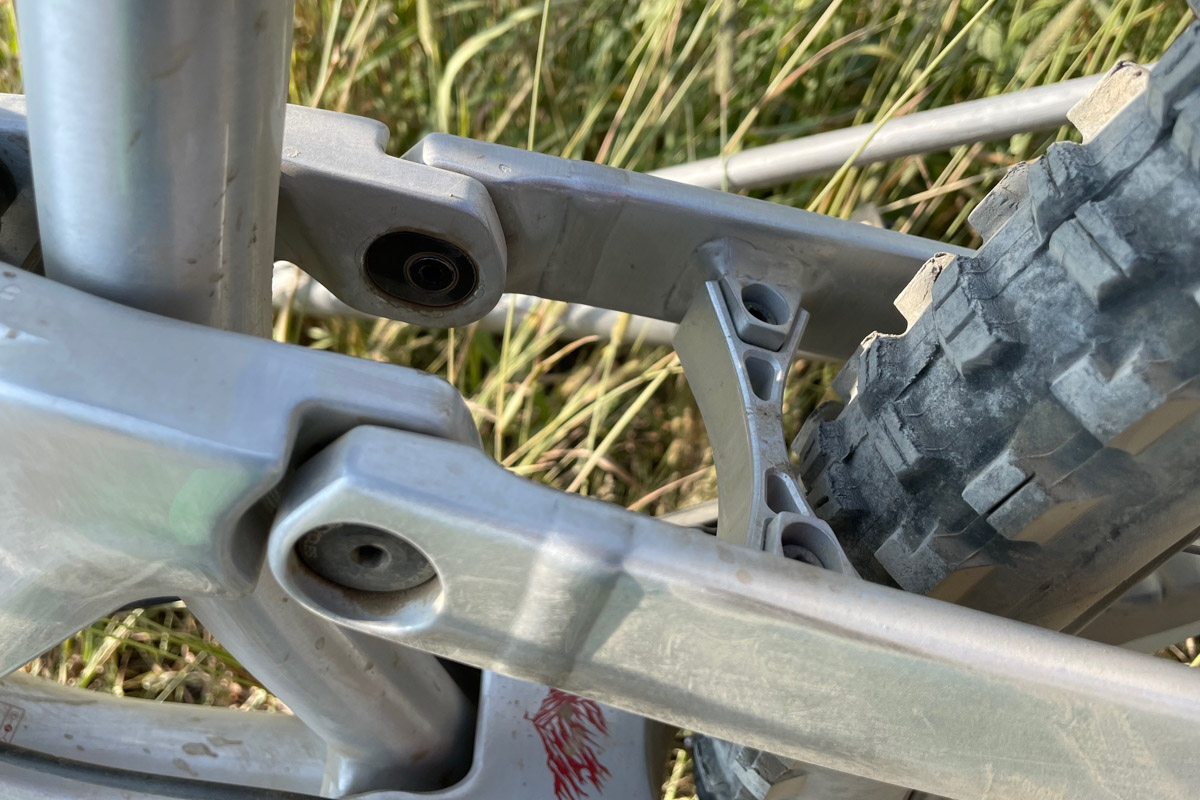
The Superior Peak frame is made from airformed aluminum, has 200mms of rear travel, and it can run 29” wheels or MX wheels on all frame sizes. A flip chip at the top of the seat stays keeps the frame geometry and kinematics almost identical with either rear wheel size. For freeride or bike park setups, the Superior Peak can run a single crown fork.
The Superior Peak frame offers adjustable geometry and suspension kinematics, with eight possible configurations.
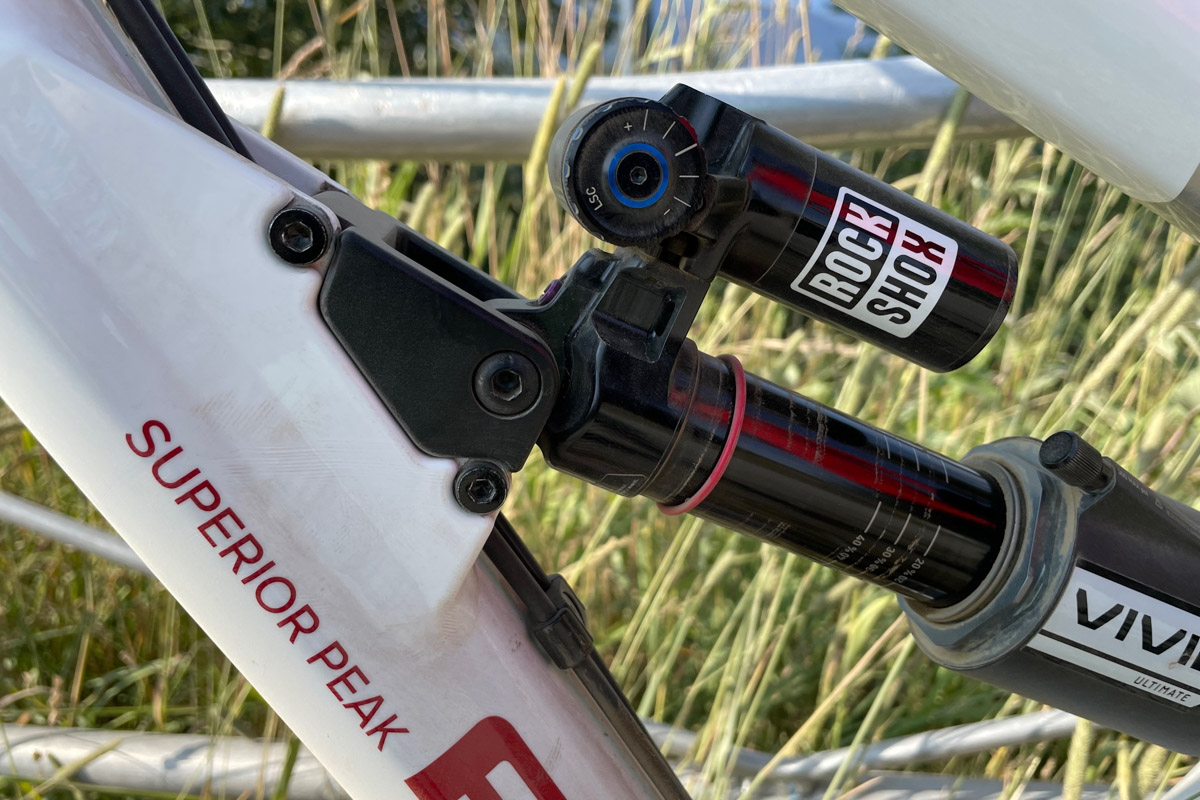
You can choose between low and high BB settings, short or long chainstay settings, and the frame is compatible with angle and reach adjust headsets. The bikes come stock with normal headsets, but Ari offers customization options and will add a reach/angle adjust headset to your bike upon request. On top of tuning the geometry, the Superior Peak’s suspension curve can be adjusted via two less/more progressive leverage ratio settings.
Frame sizes S1, S2 and S3 will be available, covering riders from roughly 5’3” to 6’5”.
Build Options:
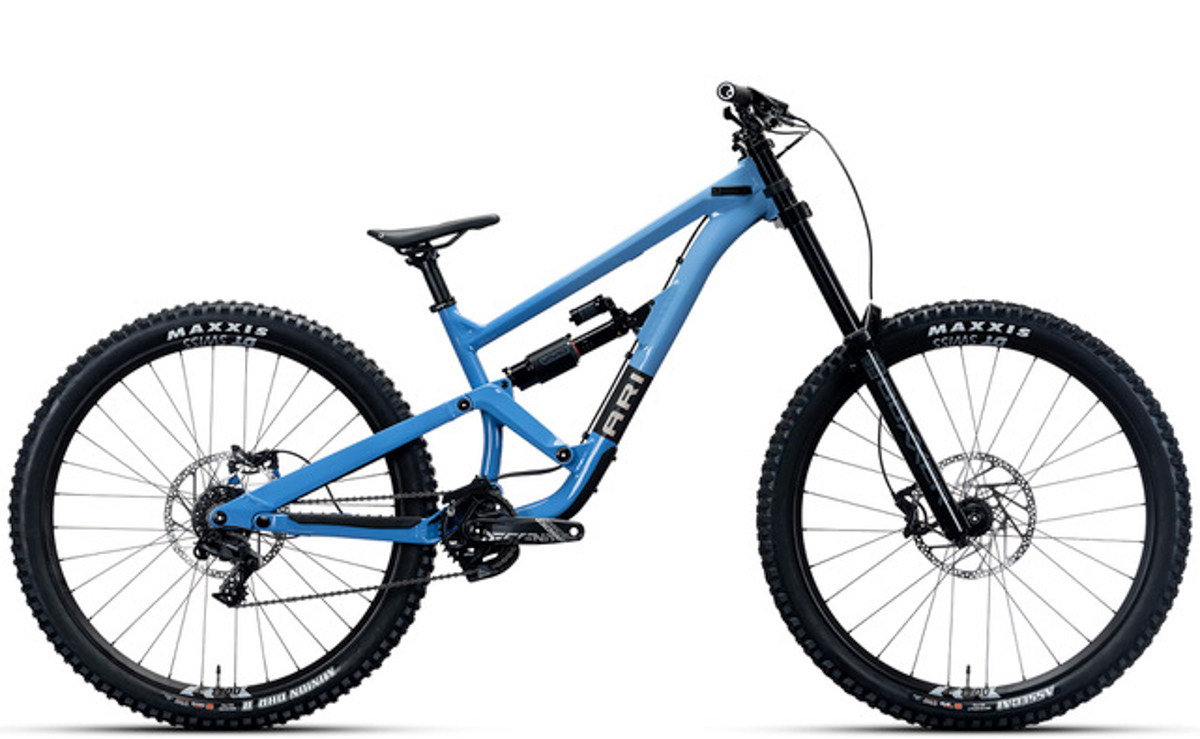
The two complete bike options will be the Comp and Elite models. Since Ari is still in the prototype stages and things could change, we’ll leave the complete spec rundowns for the launch article. At a glance, the Elite model includes a RockShox Boxxer Ultimate fork, a Vivid Ultimate rear shock, and a SRAM X01 drivetrain. It will retail for $6499. The Comp model gets a RockShox Boxxer Charger 3 RC fork, a base model Vivid rear shock, and a SRAM GX drivetrain. That model is priced at $4499. Both models will be available in either the blue or white/raw colorways seen in the photos.
One Ride Impressions:
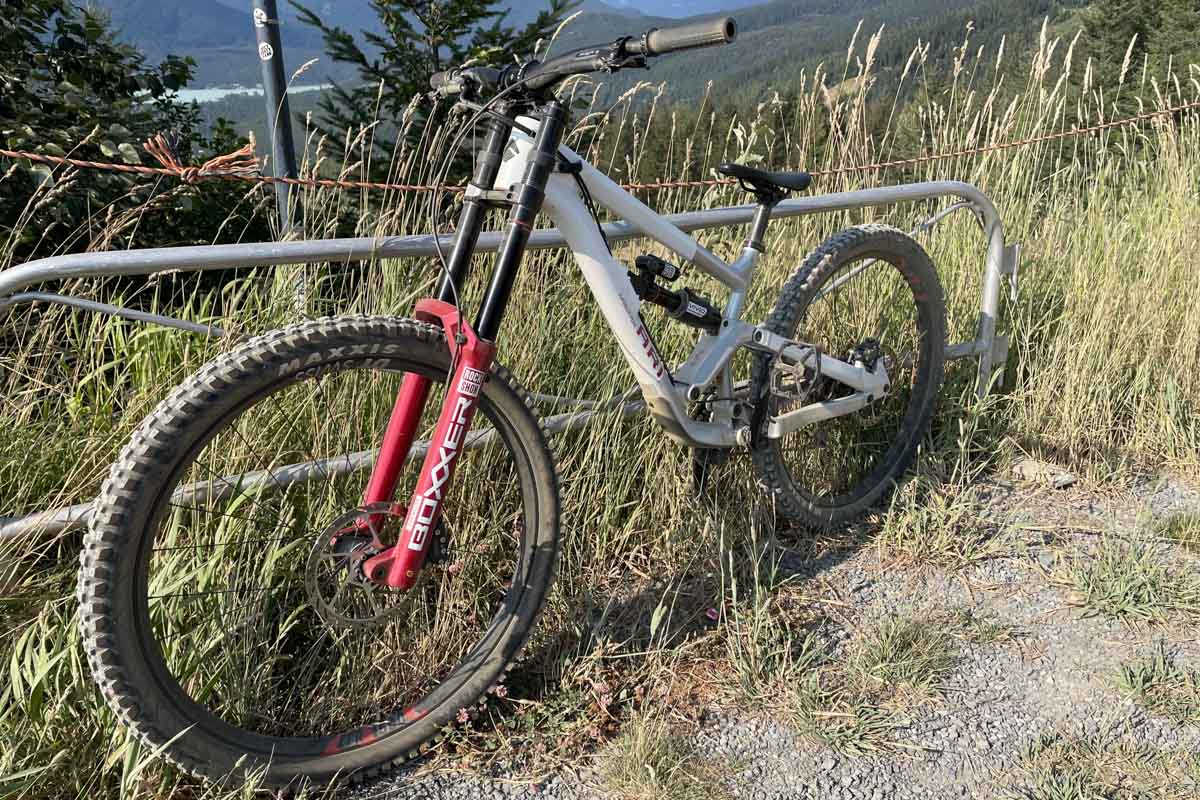
I got a chance to take the Superior Peak for a few laps in the Whistler Bike Park during Crankworx… and it rekindled my affinity for downhill riding. This stable, supportive bike brought my faded bike park confidence back in a few hours flat!
Ari doesn’t have a geometry chart posted for the Superior Peak yet, but here are some of the key specs on the setup I rode: I am 5’10” tall, and I was on the S2 frame size, set up with 29” wheels front and rear. The S2 frame has a 480mm reach, and was in its short chainstay setting (444mm). Its head tube angle is 63.5°. I rode the bike in the low BB setting, and in the more progressive leverage ratio position.
With just a few hours on the bike, I’m keeping my brief initial impressions focused on frame geometry and suspension characteristics….
Geometry:
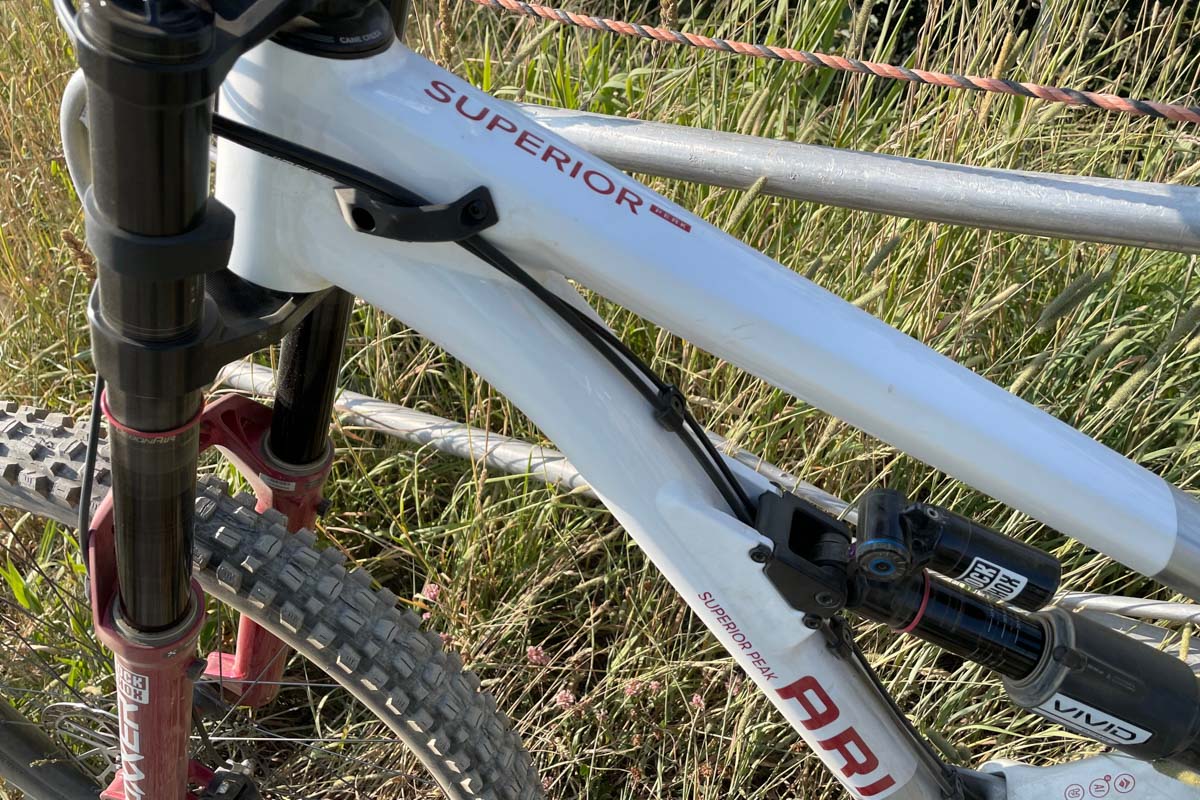
I stepped out of the DH game for the last few seasons, after selling off my aging downhill bike. In the meantime, trail/enduro bikes have grown significantly (which I’m happy about), so I was curious what size DH frame I’d feel comfortable on.
With a reach of 480mm, this is the longest downhill bike I’ve ridden by a large margin, and on the first lap it felt long in terms of wheelbase but comfortable as far as body position and reach. After a couple runs, I quickly adapted to handling the longer bike. By the end of the day I was convinced this is the size of DH bike I should be riding.
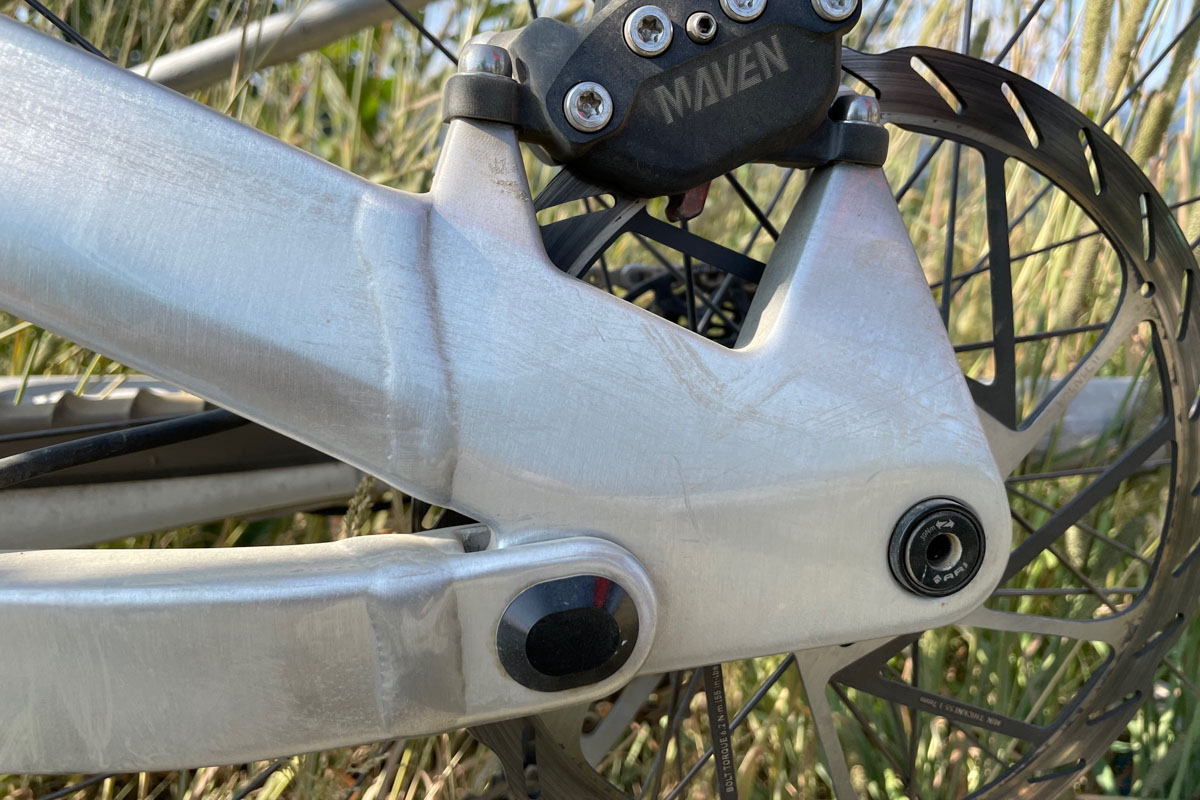
The lengthy front end gave the bike plenty of stability at high speeds and was definitely not too long for me to pull up for a little bump-to-bump wheelie. The 444mm chainstays didn’t feel excessively long at all, and cornering was still relatively quick and fun. My test bike was in the short position, so you have the option of going longer if you want.
Oddly enough the Superior Peak’s 63.5° head angle is actually steeper than the slackest position on the Specialized Stumpjumper I recently reviewed. With a 200mm DH fork up front, it felt appropriately slack and very capable on steep or rough terrain.
Suspension:
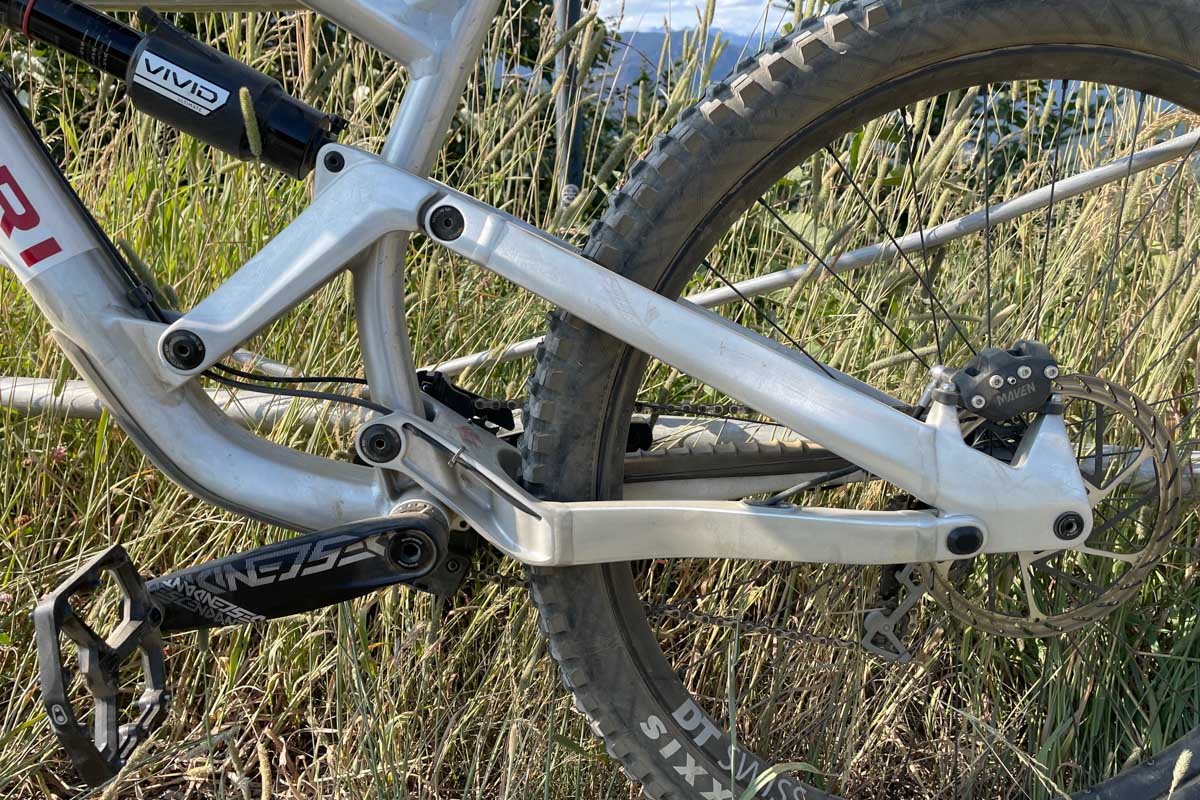
With the bike in the more progressive leverage chip setting, I hit about 90% travel. Keeping in mind I’m a bit rusty in the bike park, and the bike has a less progressive setting, I doubt I’d have any trouble dialing it in properly given more time to experiment with setup. That’s a nice thing to know if you’re a lightweight rider like me (at 135lbs).
The Superior Peak’s Tetra Link suspension linkage did a great job of sucking up big or repeated hits. What really pleased me was how supportive the mid-stroke was; the bike felt lively and never spongy while pumping through rollers or tight berms. It also showed an eagerness to spring forward and maintain speed.
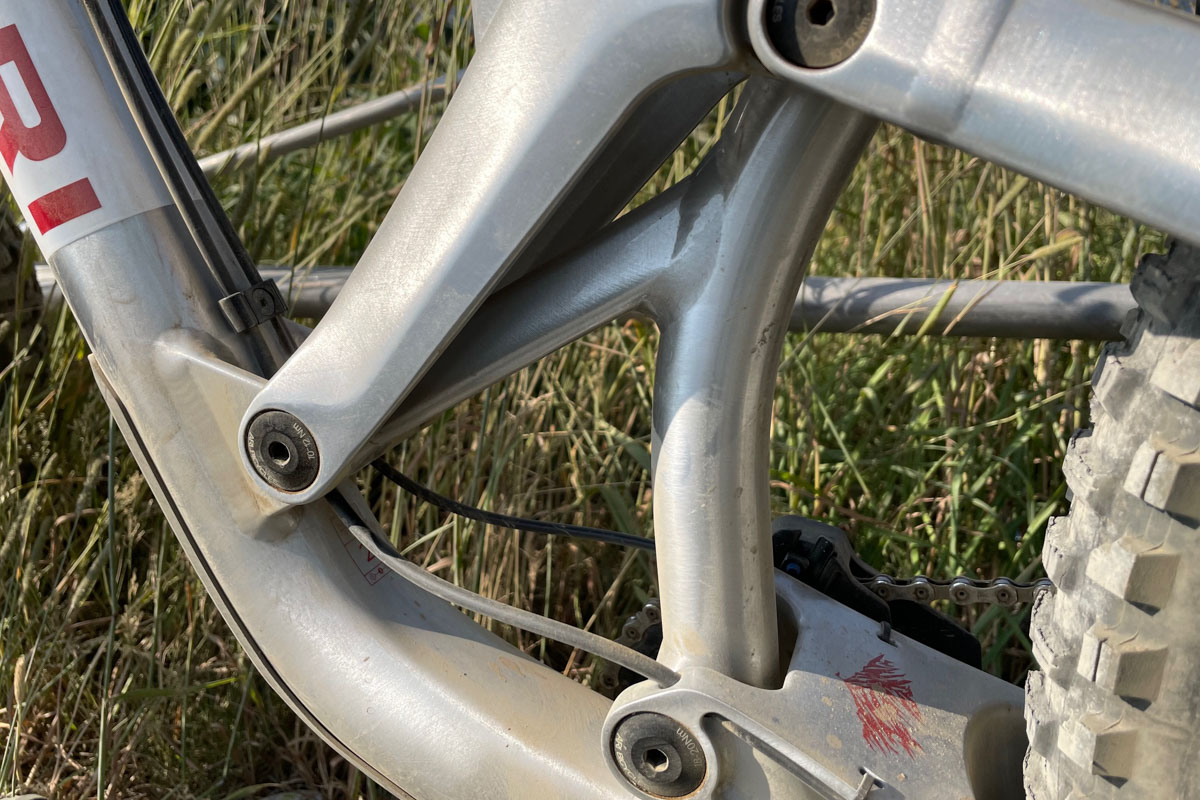
While bump absorption was great, the Superior Peak is not a bike that produces a numb, deadened ride. I found its supportive mid-stroke helped it pop quite nicely off roots, bumps, or bigger jumps.
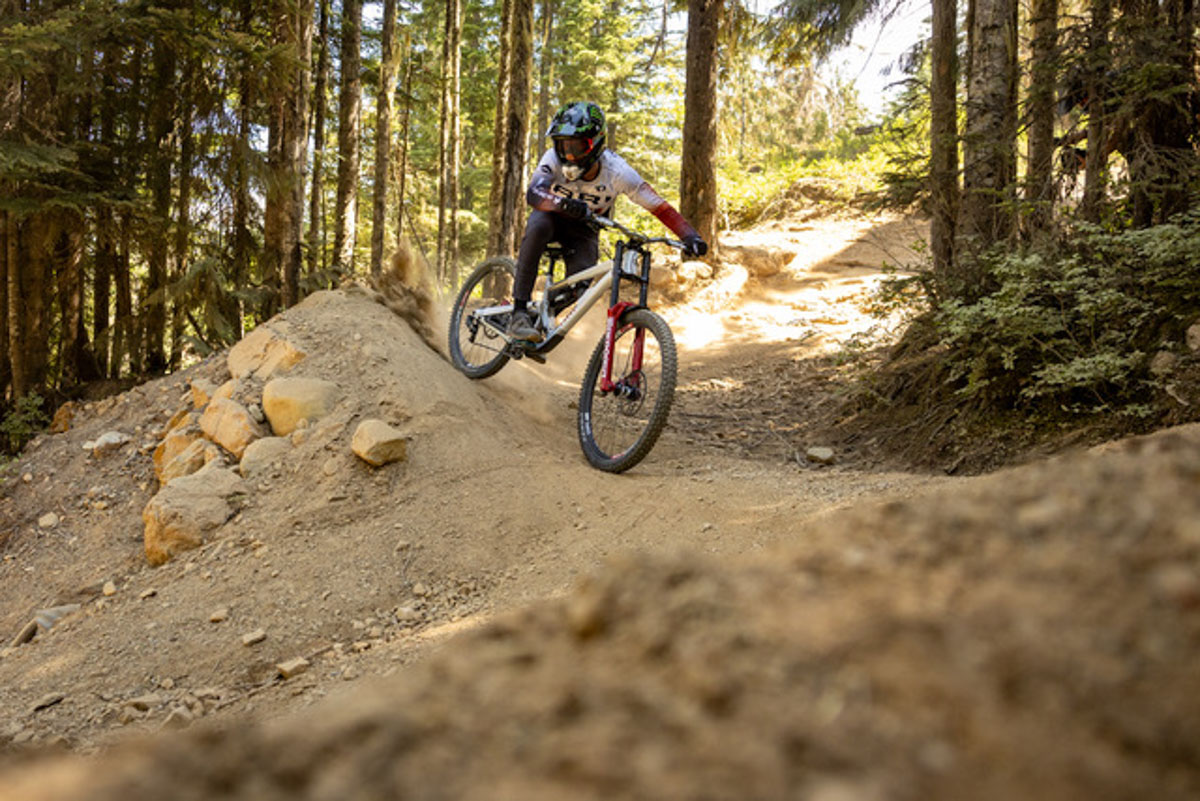
Ari is planning to officially launch the Superior Peak this fall, so watch Bikerumor for an upcoming article with complete details on the model lineup. Interested customers can pre-order a Superior Peak from Ari’s website now.
